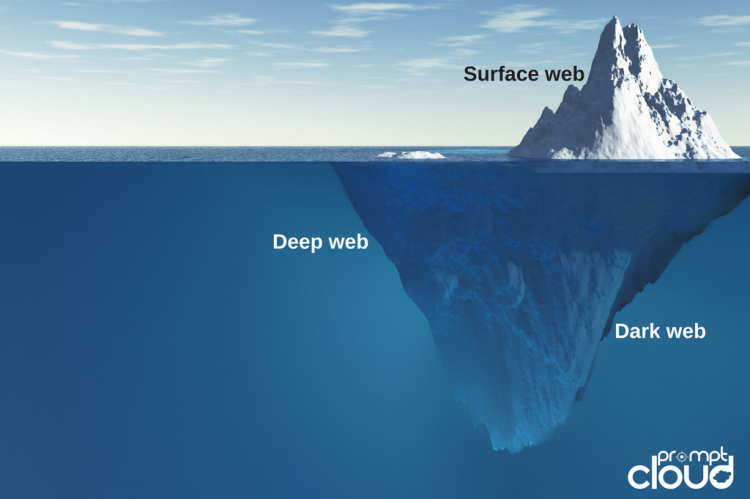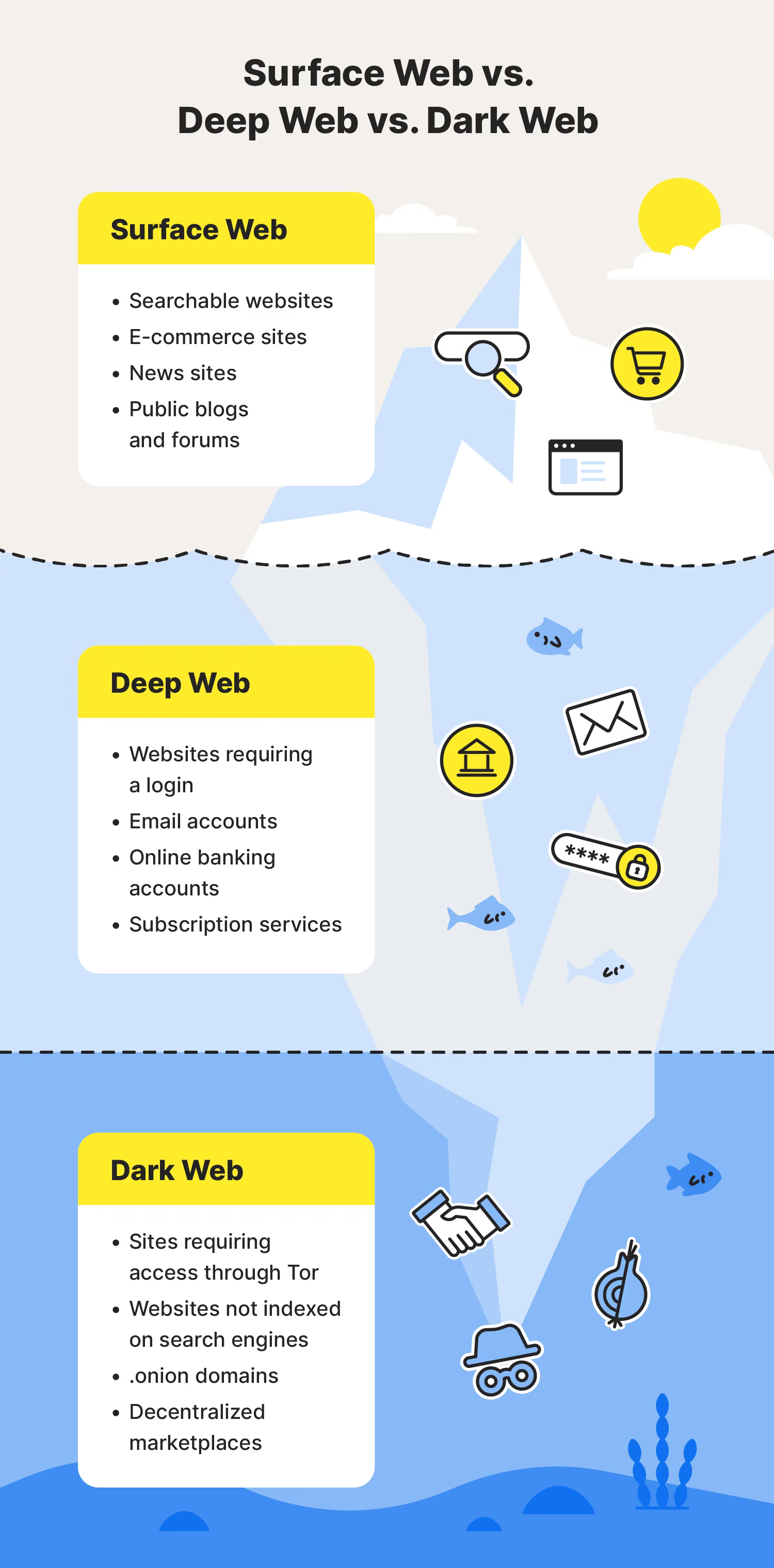People turn towards the web for targeted information on numerous things – from a simple information search to DIY videos and latest updates, there’s nothing that you don’t get online. Irrespective of their profession, people across the world rely on online platforms to add value to their jobs.
Quite naturally, it becomes imperative to stay informed about certain things. The web surrounds innumerable aspects and factors which are often not fully understood by many. Of late, the concepts about the surface web, dark web, and deep web are doing the rounds. It is high time we take a look at these concepts and try to understand them.
Beginning with surface web
As the name suggests, ‘surface web’ deals with all the operations and processes that take place on the surface of the web. We all are familiar with these operations as they are indexable and can be crawled by search engines. The leading search engines like Bing, Yahoo, and Google crawl and index these webpages to make them available for the search users. Depending on the information present on these pages, these search engines rank websites. Every business today opts for SEO services, which helps get their brand noticed by potential consumers.
The crawling process:
Google or any search engine for that matter has a distinctive way of crawling sites. By identifying targeted keywords and site links, these search engines crawl sites and assign them ranks accordingly. Content search is a significant part of the process too. In a nutshell, surface web features web-based contents which are available to be indexed by the search engines.
Deep web demystified
With that theory on the surface web, it’s time to move to the deeper levels. So, what is the deep web and what are its defining features? Here’s a short synopsis:
If we follow the definitions offered by purists, the surface web can be tracked and traced by search engines. The deep web is just the opposite. All that a search engine fails to identify falls under this category. Now, you might wonder how search engines fail to get the desired information about a webpage. There are certain factors which we should know.
1. Reachable by users: As a user, you can reach out to content on the surface web. However, search engines will fail in this context. They won’t succeed in finding the right set of information or the page itself.
2. Secured access: Say, for instance, you set up a site and try to access it from a different location. You can access and use the IP address of a computer thus finding these links, which search engines aren’t able to do. This particular aspect is prevalent in the case of some government websites. You can’t gain access to these libraries through search engines, nor do they appear in search results. Human actions and interventions are necessary to gain access to these contents. The demarcation between deep web and surface web isn’t that clear. It is a bit blurry where users fail to identify the exact differences. The most striking difference is that search engines can’t index the former and the latter gets noticed by them.
When things get darker
According to some of the leading online portals, the dark web is a mysterious world of internet activities and operations. It’s like a cyber-underworld which promotes secret and dark activities. If market reports are anything to go by, the deep web covers a whopping 90% of the web. Here’s a formal definition formulated by experts:
The dark web happens to be a part of the deep web, which remains hidden and is inaccessible through general browsers. You can’t gain access to the information or data stored in the dark web as they are unidentifiable through search engines and standard browsers.
You can’t access information stored here without the TOR browser. The dark web also promotes illicit activities in the digital world. The prime focus, in this case, is anonymity and hidden identities.
How dark is it?
Just as the difference between deep and surface web tends to be a bit blurry, the differences existing between deep and dark web are also confusing. While most of the people think dark web as a separate entity, it isn’t entirely true. The dark web happens to be a significant portion of the deep structure. Compared to the extent and size of the surface web, both of them are smaller.
When you are operating on the dark web, you are embracing anonymity. Quite unlike operations in the surface web, the dark web doesn’t promote transparent indexing, and your browser doesn’t exchange IP address with the site. Rather, you agree to execute operations in an anonymous and neutral location.
A simple example or analogy will help you understand the concept better. When you plan to purchase from a leading online store, you shop, checkout, and pay the price for your products. You know the seller or the manufacturer, and it is somewhat similar to writing cheques for a known company. Things are different on the dark web. No one can follow, trace, or track your activities on the dark web and you can stay in complete anonymity.
How dark web works
Image Source: https://in.norton.com/
Finding out how the dark web works are the best way to understand it. When you engage in communications in this area, you have to do it via a TOR Network. The TOR network encrypts every message and content at each point, which makes it difficult to track them. As a result, it becomes impossible to trace the origin of these communications. You will fail to find their point of occurrence or origin. That is what the dark web is all about. The presence of strong encryption makes it almost impossible to track these activities, which promotes anonymity to a great extent.
Parting thoughts
Surface web, dark web, and deep web are interconnected concepts. They define certain activities that take place on the world wide web and have severe repercussions on online operations. While activities on the surface level are mostly secure, those taking place in the deep levels are hidden and shady. In the case of the dark web, anonymous operations form the major part of activities. In short, the surface web is the place where search engine crawlers, as well as our own crawlers, go to fetch useful information whereas the dark web houses dark and shady activities and is best avoided for security concerns.























































